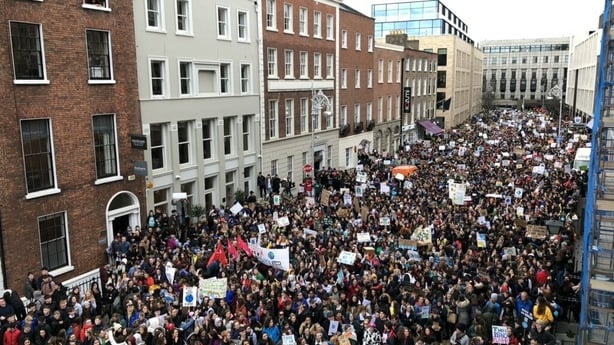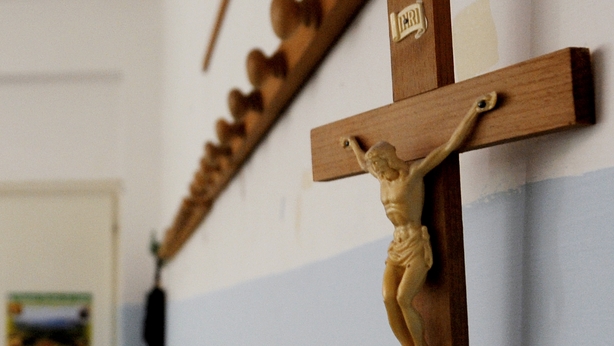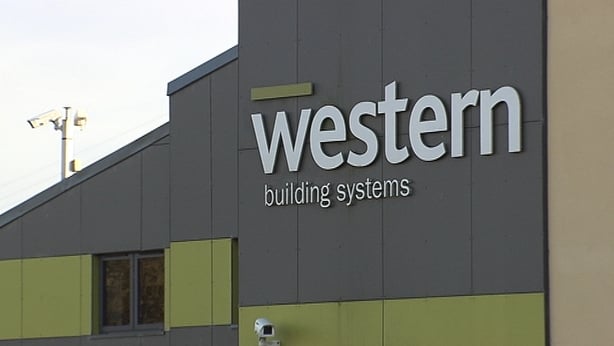One event in the world of education marks 2019 out from all others and it's one that began with school students themselves, not education policy makers or schools.
On 15 March, thousands of students abandoned their schools and gathered in towns and cities across the country to protest what they believe is inaction over an issue close to their hearts, and their futures - the climate crisis.
Like millions across the globe they were determined to force this issue to the top of the political agenda.
Some students marched in defiance of principals who had requested that they remain in school, registering their concerns with activities within, or at, the school gates.
The huge demonstrations seen in March were followed by others throughout the year, impressive in their size, and in the colour and mood they brought to the streets.

There is much talk in education - and there are positive policy initiatives - aimed at giving young people more of a say in issues that concern them.
But 2019 saw students themselves seizing the initiative, taking to the streets in unprecedented numbers to make their voice heard, with colourful homemade placards and an urgent message, take heed of the warnings of scientists, before it's too late.
The scale of the student movement that erupted this year makes this something very definitely new, and it may well prove defining for both individual students and for their generation.
Divestment
In contrast, September 2019 saw another kind of history being made, but this time very quietly, at three tiny rural primary schools.
On 5 September Scoil an Ghleanna, at the western edge of the Iveragh peninsula, reopened after the summer break, as it has done for almost 160 years, and it welcomed 16 pupils through its doors.
Scoil an Ghleanna, Lecarrow School in Co Roscommon, and Tahilla National School also in Kerry, became the first to transfer from Catholic to multi-denominational patronage as "going concerns", so called "live" transfers.
All three schools made the switch with an eye to their survival.
In the face of falling enrolments this was an attempt to secure their future, to make them more attractive to parents from all kinds of backgrounds.
"We had a third of our pupils who were non-religious, so we had to look at this," principal Sorcha Ní Chatháin explained.
We need your consent to load this rte-player contentWe use rte-player to manage extra content that can set cookies on your device and collect data about your activity. Please review their details and accept them to load the content.Manage Preferences
"We needed to look at how we were going to keep pupils, and entice others. We are a beautiful school in the most stunning location, and now we can show - formally, on paper - that we are all inclusive."
For Scoil an Ghleanna the move paid off immediately. In desperate need of a 15th child so that they could keep their second teacher, in the days before reopening - and having seen a report about the school's switch on RTÉ News - a parent contacted the school and enrolled her two children.
In all three communities, the move came about after local consultation and deliberation, a process that appears to have been measured and calm.
The approach could not have been more different, months earlier, and 360km away, in a north Dublin city suburb.
A survey of the parents of pre-school children in the Malahide/Portmarnock areas of Dublin had identified a strong demand for multi-denominational primary school provision.
The Archdiocese asked schools to consult with parents with a view to transferring one of the areas eight Catholic primary schools to multi-denominational patronage, and to ask parents to vote.
Three schools responded with dramatic letters to parents warning of dire consequences and branding the prospect as "VERY alarming!".
Christmas celebrations would no longer be allowed; St Patrick’s Day would, like the snakes, be banished; Irish phrases like "Dia dhuit" and "buíochas le Dia" would be banned; and even child safety could be compromised, they warned.
One school told parents that pupils could lose a "sense of hope in times of loss and crisis".
After a week of controversy in the media the Dublin Archdiocese, expressing concern about "confusion and misinformation" parked its plans.
Baptism barrier
September 2019 saw another historic development too in the area of school patronage, and again, after years of controversy, in the end, it happened quietly.
For the first time, all children were given equal rights when it came to enrolment in the vast majority of primary schools here.
The much-debated "baptism barrier", the rule which gave priority to children who were baptised Catholics over others when it came to admission to Catholic schools, was abolished in late 2018, and its abolition came into effect for children enrolling in 2019.

History
And speaking of History, a controversy over that subject’s place in the second level school curriculum appears to have ended.
This followed more than a year of debate and concern after the subject had – in the eyes of many – been "downgraded" to optional status in the newly reformed Junior Cycle curriculum.
School buildings
2019 also saw the controversy around structural defects in schools built by Western Building Systems deepen when it emerged in August that a further 17 school buildings would require remediation works to be carried out to ensure that they were safe for students and staff.
This was in addition to 22 others where defects were discovered late in the previous year.

While the company maintained that the schools had been previously certified as being free from defects and suitable for use by professionals employed by the Department of Education, the state pressed on with a number of legal actions against WBS.
We also learned in late 2019 that the cost to date of remediation works at the schools was €40m.
This story is far from over.


